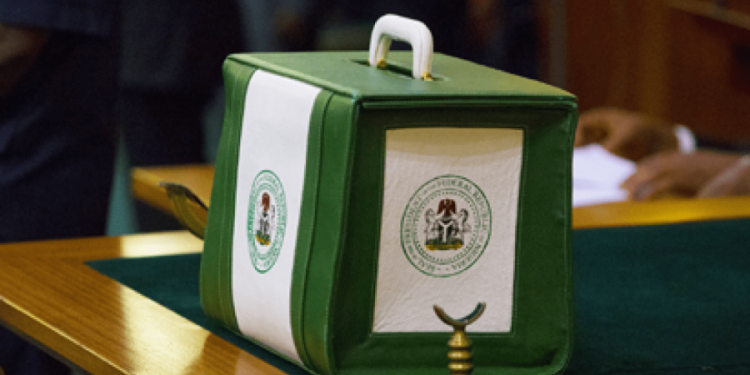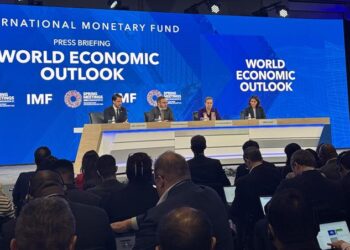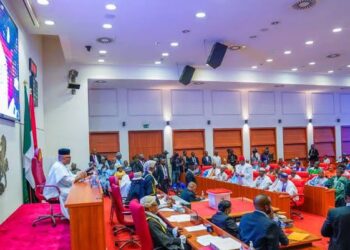The Nigerian government has set aside N100 billion for the National Home Grown School Feeding Programme (NHGSFP) as part of the 2025 Appropriation Bill.
The funding is designed to continue the initiative aimed at providing meals to public primary school students across the country.
The program seeks to improve both education and health outcomes for children while also supporting local agriculture.
According to the National Assembly of the Federal Republic of Nigeria, the total 2025 budget is N49.74 trillion, sourced from the Consolidated Revenue Fund of the Federation.
The bill outlines various allocations, including the N100 billion dedicated to the NHGSFP. These provisions aim to ensure the effective management and development of the country’s resources.
National Home Grown School Feeding Program (NHGSFP)
Launched in 2005 under President Olusegun Obasanjo, the NHGSFP was designed to improve students’ health and education by providing nutritious meals and creating a stable market for local farmers.
- The program’s objectives include boosting school attendance, improving academic performance, and supporting local farmers’ income.
- By sourcing food locally, the initiative aims to drive community economic growth while addressing the nutritional needs of children.
- However, during the administration of former President Muhammadu Buhari, the NHGSFP faced significant challenges.
- Findings showed that the absence of food vendors, poor-quality food, small portions, and non-payment to vendors were persistent problems threatening the program’s sustainability.
- These issues were compounded by reports of corruption and inefficiency in the distribution process.
Controversy under president Buhari’s administration
The program’s implementation was marred by widespread controversy. After discovering alleged corruption in the early phases, Maryam Uwais, the then Special Adviser to the President on Social Investments, revealed that the program had been suspended in some states due to reports of poor-quality food, irregular food supply, and delayed disbursements from state governors.
- Further investigations revealed that N2.67 billion meant for school feeding in the Unity Colleges during the COVID-19 lockdown was found in individual accounts, raising concerns about financial mismanagement.
- In the 2023 budget, approximately N355.09 billion was allocated to the Ministry of Humanitarian Affairs, Disaster Management, and Social Development, with about N1 billion earmarked for the NHGSFP.
- However, this allocation failed to address the needs of the children, as reports indicated that meals were not served, and food vendors were absent.
- In fact, findings showed that students, who had been returning to school due to the meals, stopped attending classes when the food supply ended.
- The absence of meals, coupled with the absence of food vendors, led to widespread dissatisfaction and disengagement from the program.
Targeted impact by 2025
Despite the controversies, the government continues to prioritize the NHGSFP in its budgetary allocations, aiming to increase school enrollment by 20% and improve academic performance by 15% by 2025.
- Additionally, there is a target to increase the income of local farmers by 10% through continued support for the program.
- However, the effectiveness of these goals hinges on the program’s ability to overcome the logistical challenges and corruption issues that have plagued its implementation.
- The 2025 budget’s allocation of N100 billion is a reflection of the government’s ongoing commitment to the program, but also a call to ensure that proper mechanisms are in place to tackle the challenges of efficiency, corruption, and accountability.
- The program remains a vital tool for fostering both educational and economic development, but its success will depend on overcoming the hurdles faced in previous years.
Approval process for virements
The bill outlines the procedure for virements, or reallocations of funds, in the event that a project cannot be completed as planned.
- Any such adjustment will require the prior approval of the National Assembly.
- This ensures that public funds are spent responsibly and in accordance with the national budget’s goals.
- The allocation for the NHGSFP, therefore, remains contingent upon the proper execution of the program’s objectives, which have been hindered by the inefficiencies of the past.
What to know
In a further blow to the NHGSFP’s credibility, a report from October 2022 revealed that the Nassarawa State government uncovered 349 “ghost schools” included in the feeding program.
- These were schools that were listed as beneficiaries of the program but did not exist or were not involved. These findings raised alarms about the mismanagement of funds and the integrity of the program’s execution.
- Despite these setbacks, the NHGSFP remains an essential part of Nigeria’s strategy to enhance both education and local agricultural productivity.
- By providing meals to primary school children and creating demand for local farm products, the program aims to promote long-term development and economic stability.
- However, its success will depend on overcoming the obstacles of mismanagement, corruption, and inefficiency that have previously undermined its potential.





















